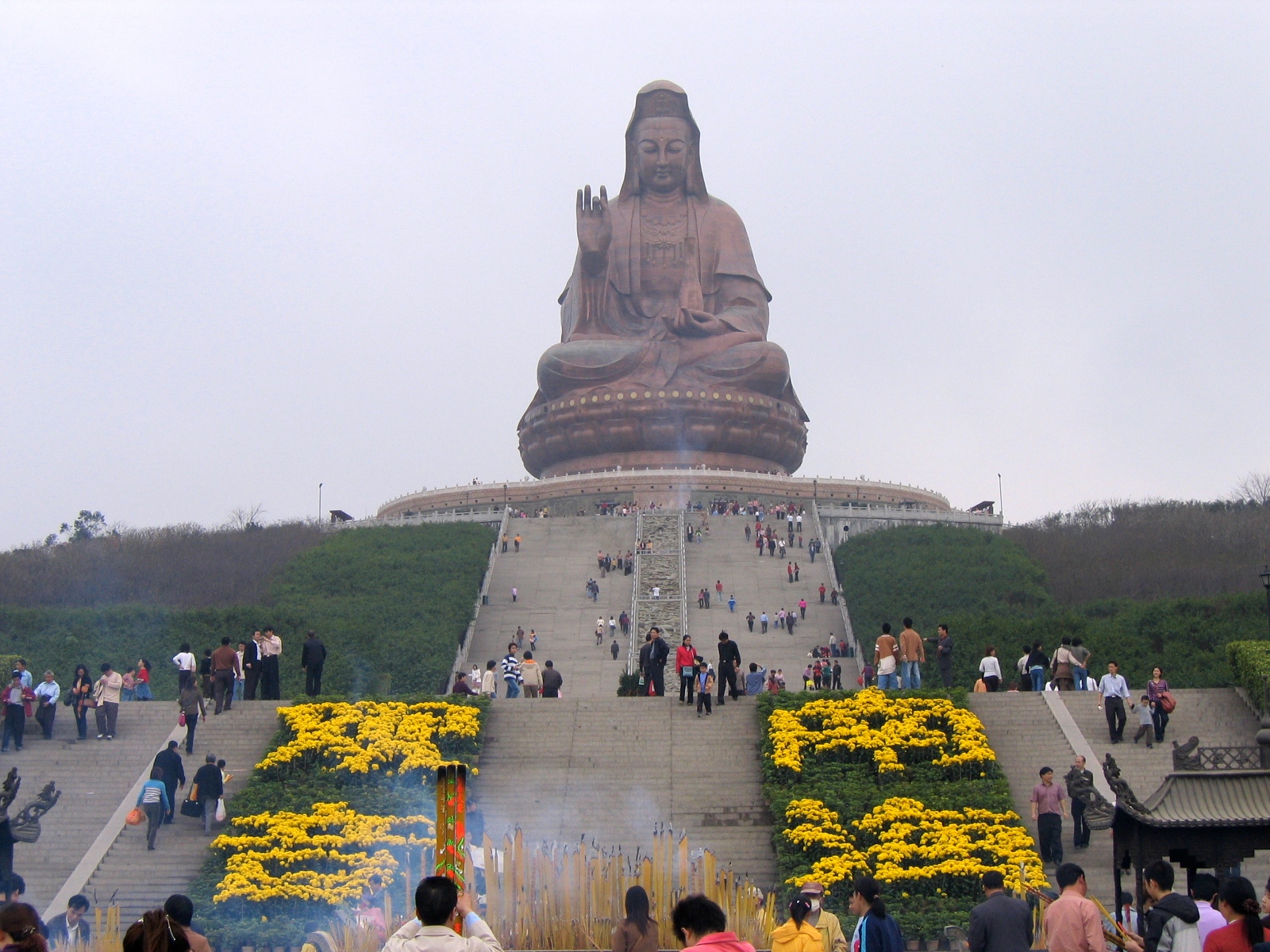|
Nanhai District
Nanhai District (), is a District (PRC and ROC), district of Foshan, Guangdong, China. Its government is the first to have developed e-government informatization at the county level in China. History Establishment of Nanhai is traditionally attributed two brothers carrying their father's bowls in 1271. They were fleeing south from the Mongols on a bamboo raft when a violent storm shipwrecked them and broke all the bowls. The brothers settled down there and the position of the wreck is commemorated by a shrine. This area was named Broken Bowls Point. On 15 February 1921, the eastern part of Nanhai County was ceded to the newly established City of Guangzhou which became part of what is now western part of Liwan District, Liwan. On 26 June 1951, Foshan Town (present Chancheng District, Chancheng) was ceded to the newly established City of Foshan. Nanhai County was upgraded into a county-level city on 2 September 1992 until 8 December 2002 Nanhai was consolidated as a district of F ... [...More Info...] [...Related Items...] OR: [Wikipedia] [Google] [Baidu] |
District (PRC)
The term ''district'', in the context of China, is used to refer to several unrelated political divisions in both ancient and modern China. In the modern context, district (), formally city-governed district, city-controlled district, or municipal district (), are subdivisions of a municipality or a prefecture-level city. The rank of a district derives from the rank of its city. Districts of a municipality are prefecture-level; districts of a sub-provincial city are sub-prefecture-level; and districts of a prefecture-level city are county-level. The term was also formerly used to refer to obsolete county-controlled districts (also known as district public office). However, if the word ''district'' is encountered in the context of ancient Chinese history, then it is a translation for ''xian'', another type of administrative division in China. Before the 1980s, cities in China were administrative divisions containing mostly urban, built-up areas, with very little farmland ... [...More Info...] [...Related Items...] OR: [Wikipedia] [Google] [Baidu] |
Chancheng District
Chancheng District is a district and the seat of the city of Foshan, Guangdong Province, China. Chancheng is the economic, cultural and political center of the city. History Chancheng belonged to the land of Baiyue during the Spring and Autumn and Warring States period, Panyu County from the Qin Dynasty to the North and South dynasties, Nanhai County from the Sui dynasty in 590 to the Tang dynasty, Xianning County during the Five Dynasties and Ten Kingdoms period in 917, and Nanhai County from the Song dynasty in 972 to the Qing dynasty. Geography The district lies at the center of Foshan, surrounded on the east, west, and north sides by the Nanhai District and bordered to the south by the Shunde District. Chancheng District is located in the hinterland of the Pearl River Delta, southwest of Guangzhou and central Foshan, bordering Nanhai District to the east, west and north, and Shunde District to the southeast and south, with a length of 15 km from north to south and a wid ... [...More Info...] [...Related Items...] OR: [Wikipedia] [Google] [Baidu] |
Kang Youwei
Kang Youwei (; Cantonese: ''Hōng Yáuh-wàih''; 19March 185831March 1927) was a prominent political thinker and reformer in China of the late Qing dynasty. His increasing closeness to and influence over the young Guangxu Emperor sparked conflict between the emperor and his adoptive mother, the regent Empress Dowager Cixi. His ideas were influential in the abortive Hundred Days' Reform. Following the coup by Cixi that ended the reform, Kang was forced to flee. He continued to advocate for a Chinese constitutional monarchy after the founding of the Republic of China. Early life Kang was born on 19March 1858 in Su Village, Danzao Town, Nanhai County, Guangdong province (now the Nanhai District of Foshan City). According to his autobiography, his intellectual gifts were recognized in his childhood by his uncle. As a result, from an early age, he was sent by his family to study the Confucian classics to pass the Chinese civil service exams. However, as a teenager, he wa ... [...More Info...] [...Related Items...] OR: [Wikipedia] [Google] [Baidu] |
Kang Tongbi
Kang Tongbi (; 1887–1969), also romanized as Kang Tung Pih, was the daughter of Kang Youwei, a Chinese reformer and political figure of the late Qing dynasty and early Republican era. Early life In 1880, Kang was born in Southern China. Official documents in the US indicate that her birth was on February 5, 1888, using the Gregorian calendar. Kang's father was Kang Youwei. Kang's mother was Zhang Yunchu, first wife. Kang's family was relatively wealthy in traditional China. Kang's father kept several wives and concubines. She was Zhang Yunchu's second daughter. Kang Tongbi's father, along with his disciple Liang Qichao, was one of the major intellectual figures behind the launching of China's political reform by the Guangxu Emperor in 1898, but political infighting at the Qing court caused the reform movement to be summarily aborted within 103 days of its start, and a death warrant to be issued against Kang Youwei. He hastily left the country with his family and would spend t ... [...More Info...] [...Related Items...] OR: [Wikipedia] [Google] [Baidu] |

